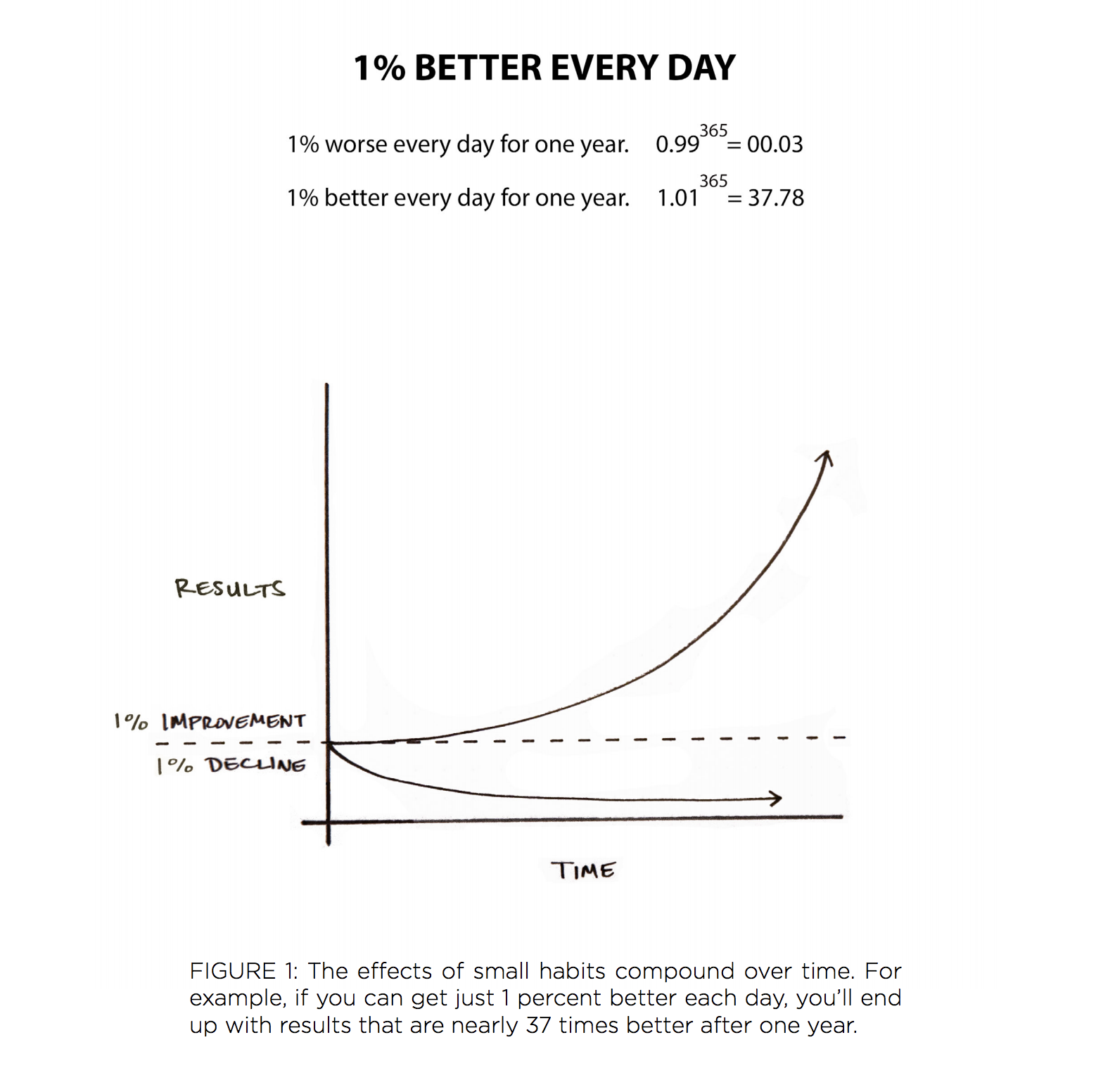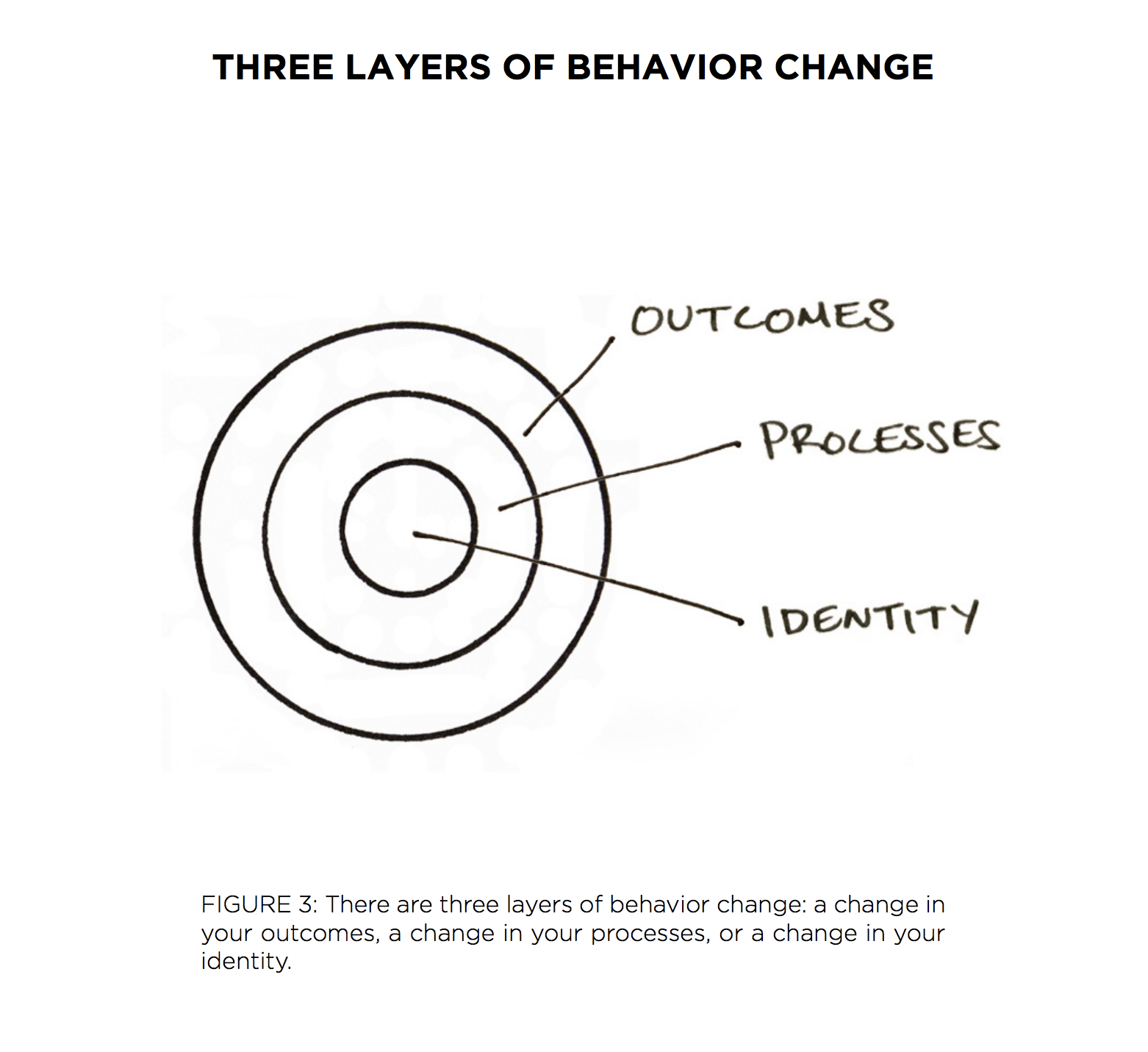Recently, I had the chance to read an advance copy of James Clear's new book, Atomic Habits.
Here's the thing: I'm not huge into the literature on habits these days. I've been fascinated by it before, but I've kind of moved on. So when I sat down to read Atomic Habits, it wasn't because I was intrigued by the topic — it was because of how much I've appreciated Clear's clarity of thought, earnestness, and writer's ability over the past few years. His blog is one of the few I subscribe to.
As it turned out, Atomic Habits wasn't just a book on habits for me. Rather, it was an exploration of how our lives and careers end up in places that we didn't expect. What does it really take to achieve our biggest goals — for example, the construction of flourishing and impactful lives, professionally and personally? Clear gave me needed insight into this large, hairy, burning question. Below is a brief list of insights that I appreciated.
1. Clear's approach to habit formation accounts for both the external stimuli that influence our behaviors and the internal emotions that drive them. Consider my email habits prior to this school year. I'd check my inbox 10-20 times per day, both on my phone and on my computer. Why did I used to do that, even when I knew email is so infrequently connected to the long-term flourishing outcomes of my students — or of me? It's a mixture. My environment made it easy because I had email on my phone, and my often sub-optimal internal state made it appealing. Whenever I'm stressed or overwhelmed or feeling pressured, the draw of my inbox is stronger. It's that quick potential hit of dopamine when I get something interesting or affirming or exciting. Clear's book helps me see this external/internal interplay more quickly.
2. The habits most likely to influence my career and my life — for better or worse — are the kinds of habits that are easy to ignore. If I spend 20 minutes today complaining with a colleague in the copy room, it's not a huge deal. I can probably make up for the lost time — today. But doing that every day for the next ten years costs me hugely. It changes the shape of my life. I lose dozens of accumulated days of productivity — days that I could have spent, for example, reading books like Clear's. Even more importantly, daily complaining changes the bent of my soul. It reforges the steel of my character, slowly twisting me from the life and joy and purpose I could otherwise tend toward were I to spend those twenty minutes doing something other than complaining. (Here's my case against complaining.)
What I like about Clear's book is that he makes points like this repeatedly. He helps clear the “fog of war” away from the daily battle for building the lives we want to build.
3. The math of small, daily improvements is cool. When you get 1% better every day for one year, you improve by 38%. But if you get 1% worse every day for one year, you end up at almost zero. Clear illustrates this with the following figure:

4. Bad habits are sort of terrifying, especially when they happen in the home. Here's a line that hit close to home for me: “If you work late tonight and ignore your family, they will forgive you… But when we repeat 1 percent errors, day after day, by replicating poor decisions, duplicating tiny mistakes, and rationalizing little excuses, our small choices compound into toxic results. It's the accumulation of many missteps — a 1 percent decline here and there — that eventually leads to a problem” (p. 17). For the past six months or so, I've been aggressively trying to bend my life to work within sharper constraints than I've ever placed on it. Why? Because I don't want to build a successful teaching or writing career at the cost of consistently neglecting my wife and children. It's an unacceptable cost. I know I'll regret it. I appreciate that Clear reminds me of this.
5. “Goals are good for setting a direction, but systems are best for making progress.” Plenty of us set goals. Clear essentially says this is pointless. If you set a goal to win a championship, that's fine, but it's how you approach practice and coaching and recruiting and so on — those systems are where you're going to win or lose championships. In my AP courses for ninth graders, my goal is that 100% of students will pass the exam with a 3 or better. But the goal doesn't bring me closer to achieving it — it's my continued study of how to help students master the course material, my development of systems for homework and feedback and test development and so on. In my general level courses, my goal is for students to hold at least a 2.5 GPA or better at the end of first semester. But, again, it's not the goal that's going to make that happen. It's the systems.
(In 2019, I hope to write more about the systems I've developed and build a course on the topic.)
6. At the core of behavior, you'll find beliefs. I love this because it lines up with the central argument of Chapter 2 in These 6 Things and the entirety of the Student Motivation Course. If we want our kids to do work and do it with care — we do — then we need to get so much better at cultivating five key beliefs in all of our kids. This is manageable at the school or classroom level, but almost no one is doing it. Building a movement of teachers who are doing this is a core goal of mine for 2018, and the systems I've built for getting the message out there are my book, These 6 Things, and my online PD course. Speaking of which, that course is going to open for registration one more time this year — you'll find a link to a waitlist here.
If we want to change student achievement outcomes, we're wise to start with student beliefs.

So look: if you're after a professional development book that can push your thinking both in and outside of your job in education, check out Clear's Atomic Habits. It's out today, and it's worth your time.
(Please note: links to books on my website are affiliate links. When you purchase through these links, I get a small commission that I use to build my professional and classroom libraries. Thanks so much for your support.)
Leave a Reply